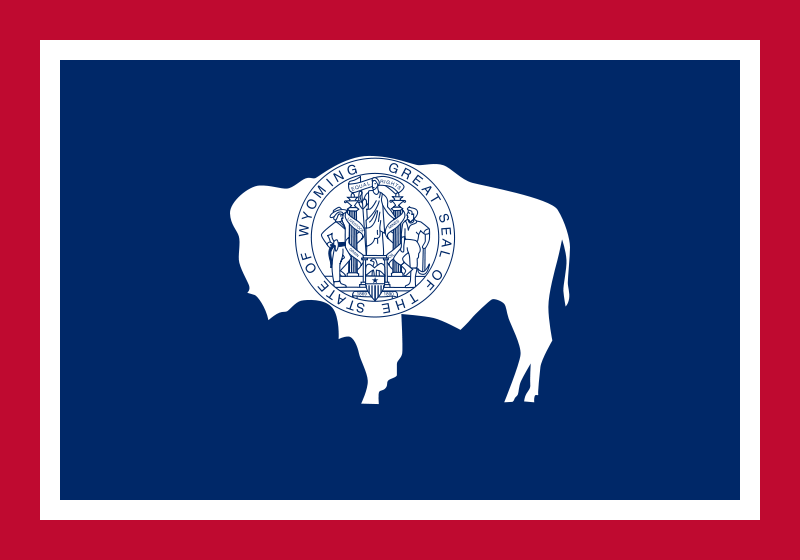Wyoming voters will decide on a ballot initiative at the Nov. 3, 2026, election—the first initiative to reach the ballot in 30 years.
The ballot initiative would create a homeowner’s property tax exemption. This would exempt 50% of a primary residence’s assessed value. To qualify, homeowners must have lived in the state for at least one year and in their primary residence for at least six months during the previous tax year. The exemption would cover houses, trailer houses, mobile homes, and other dwelling types. It could also be claimed on a property owned by a farming or ranching business entity if the property is used as a primary residence by one of the entity’s partners, shareholders, or their relatives.
Revenue Department Director Brenda Henson estimated that the exemption would apply to approximately 173,000 residential properties based on current census information.
The initiative does not include a provision for local government tax revenue loss reimbursements, also known as backfilling.
The initiative was sponsored by BCR Initiatives, a group of three individuals—Brent Bien, Cheryl Aguiar, and Rich Weber. Bien ran in the Republican primary election for governor in 2022. Weber was his campaign manager. Aguiar is the chair of the Hot Springs County Republican Party.
BCR Initiatives said the initiative would mean that “100,000 retired people on fixed incomes won’t lose their home because they can’t afford property tax. All the working people looking at buying a home will be able to afford their government rent (property tax). Families struggling to make ends meet. Homeowners who try to budget and then get hit by … unexpected increases in their property taxes.”
State Rep. Liz Storer (D-23) said the initiative would result in a loss of state tax revenue to fund education. Storer said, “This initiative will help rich people the most at the expense of Wyoming’s kids and its communities. There’s a better way to provide meaningful tax relief to those who really need it.” BCR Initiatives said that the initiative would not harm education funding, stating, “There is $25 billion in reserves in 23 counties accumulated [through] excessive taxes through out the state. 10-20% of Wyoming’s $13 Billion budget is squandered on windmills, carbon capture sequestration [such as the] Dry Fork Experimental Power Plant, CCS Pipeline, and other hidden deals. Wyoming is a Tax Shelter for estimated $100 Billion dollars of corporation money from thousands of out of state and out of country businesses.”
The initiative was filed in 2023 with a circulation period between Oct. 13, 2023, and April 13, 2025. To qualify for the ballot, 29,730 valid signatures were required (15% of the total votes cast in the 2022 general election). The number of required signatures for 2026 initiatives in Wyoming increased to 40,669 based on the number of votes cast in the 2024 election, however, because proponents submitted signatures prior to the 2024 general election, the signature requirement for the previous election was used.
Wyoming Secretary of State Chuck Gray (R) certified the initiative for the ballot on Jan. 3, 2025. Gray announced that proponents had submitted 30,251 valid signatures.
The initiative will be the first to appear on the statewide ballot in Wyoming in 30 years. The last time an initiative was on the ballot in Wyoming was 1996, when voters decided on an initiative and a veto referendum. The initiative was designed to call on the state’s congressional delegation, state legislators, and the governor to advocate for a U.S. constitutional amendment establishing term limits for Congress and requiring the secretary of state to place labels on ballots next to candidates’ names who did not “support every possible legislative action to promote term limits.” The veto referendum was designed to repeal 1995 Senate Enrolled Act 4, which increased the term limits for state representatives from six years to 12 years. Both of the measures were defeated. Although both measures received more than a simple majority of votes, Wyoming law requires an initiative to gain a majority of all ballots cast in the election—not just a majority of votes specifically cast on the initiative. As a result, blank votes are effectively ‘no’ votes.
Wyoming voters were granted the power of initiative and referendum in 1968. In total, eight citizen initiatives have appeared on the statewide ballot in Wyoming: three in 1992, three in 1994, and two (one initiated statute and one veto referendum) in 1996. Of the eight initiatives to appear on the ballot, five were defeated and three were approved.


